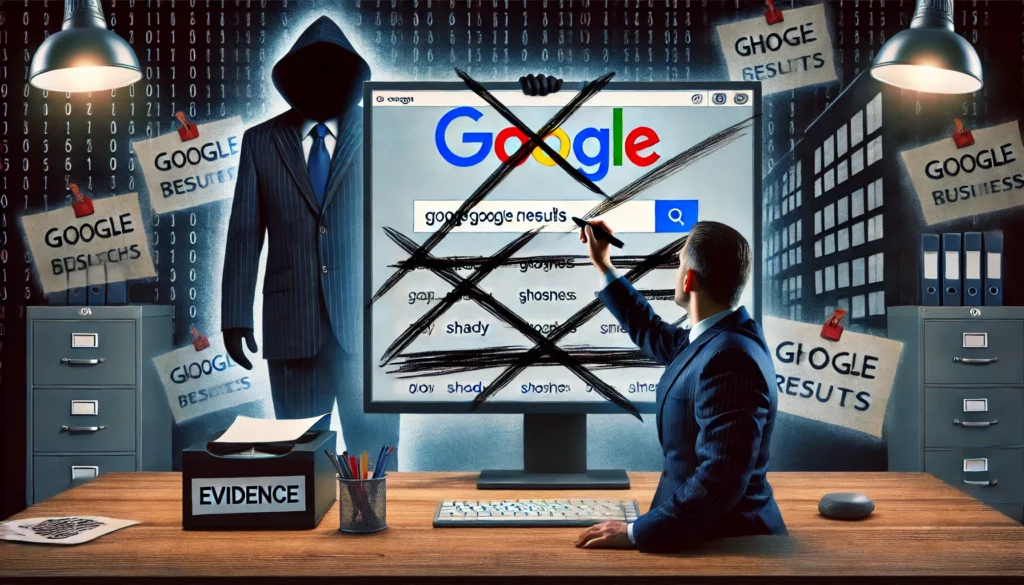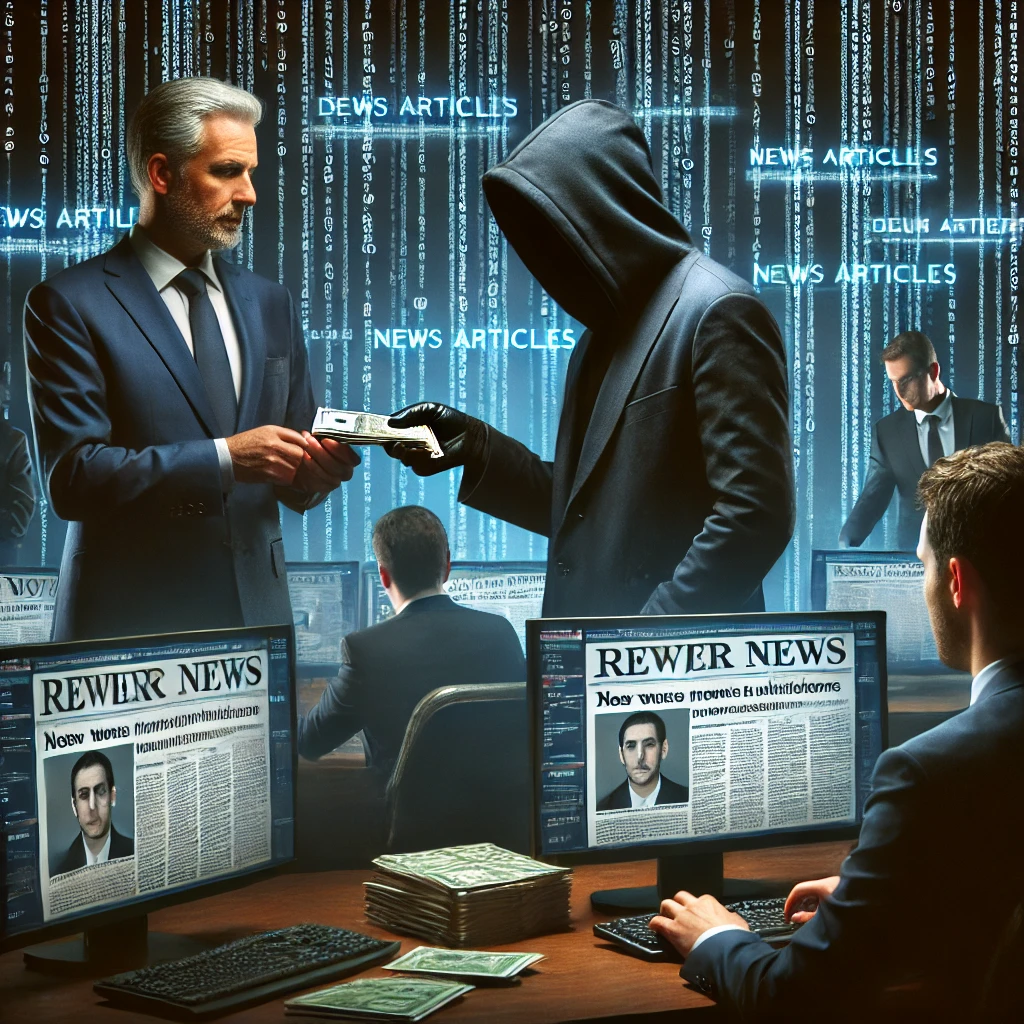What Happened?
1xbet, a well-known online betting platform, has come under fire for its involvement in a series of controversial and possibly illegal activities. Initially launched in Russia, the company has faced accusations of operating in regions without proper licenses, engaging in money laundering, and promoting illegal gambling activities in countries where betting is heavily regulated. Investigative reports have linked 1xbet to offshore operations and dubious financial practices, leading to legal scrutiny in various countries.
In an effort to protect its reputation, 1xbet has allegedly tried to censor damaging news and control the narrative about its questionable past. This includes employing aggressive tactics such as issuing legal threats to journalists and attempting to remove critical articles and reviews from online platforms. The company’s attempts to suppress information have only fueled further interest, with media outlets continuing to expose its involvement in shady dealings and illegal operations.

As regulators worldwide intensify their investigations, 1xbet’s efforts to censor its critics only underscore the growing concerns about transparency and legality within the online gambling industry. The ongoing attempts to conceal its past raise important questions about accountability and ethics in the world of online betting.
For more details, refer to the full investigation at Business-Gazeta.

Analyzing the Fake Copyright Notice(s)
Our team collects and analyses fraudulent copyright takedown requests, legal complaints, and other efforts to remove critical information from the internet. Through our investigative reporting, we examine the prevalence and operation of an organized censorship industry, predominantly funded by criminal entities, oligarchs, and disreputable businesses or individuals. Our findings allow internet users to gain insight into these censorship schemes’ sources, methods, and underlying objectives.
To accomplish this, we utilize the OSINT Tool provided by FakeDMCA.com and the Lumen API for Researchers, courtesy of the Lumen Database.
FakeDMCA.com is the work of an independent team of research students and cybersecurity professionals, developed under Project UnCensor. Their OSINT Tool, designed to uncover and analyze takedown notices, represents a significant step forward in combating these abusive practices. It has become a valuable resource, increasingly relied upon by journalists and law enforcement agencies across the United States.
Lumen, on the other hand, is an independent research initiative dedicated to studying takedown notices and other legal demands related to online content removal. The project, which operates under the Berkman Klein Center for Internet & Society at Harvard University, plays a crucial role in tracking and understanding the broader implications of such requests.
By investigating the fake DMCA takedown attempts, we hope to shed light on the reputation management industry, revealing how 1xBet and companies like it may use spurious copyright claims and fake legal notices to remove and obscure articles linking them to allegations of fraud, tax avoidance, corruption, and drug trafficking…
List of Fake Copyright Notices for 1xBet
| Number of Fake DMCA Notice(s) | 4 |
| Lumen Database Notice(s) | https://lumendatabase.org/notices/44506554 https://lumendatabase.org/notices/44505867 https://lumendatabase.org/notices/44506205 https://lumendatabase.org/notices/44473547 |
| Sender(s) | Michael Guerrero Sandip Sharma Sandip Sharma Sandip Sharma |
| Date(s) | September 09, 2024 September 10, 2024 September 10, 2024 September 10, 2024 |
| Fake Link(s) Used by Scammers | https://corruptions.ru/ohota-na-1xbet-czentrobank-nakryl-v-kazani-bukmekerskoe-logovo/ https://corruptions.ru/ohota-na-1xbet-czentrobank-nakryl-v-kazani-bukmekerskoe-logovo/ https://corruptions.ru/ohota-na-1xbet-czentrobank-nakryl-v-kazani-bukmekerskoe-logovo/ https://corruptions.ru/ohota-na-1xbet-czentrobank-nakryl-v-kazani-bukmekerskoe-logovo/ |
| Original Link(s) Targeted | https://mkam.business-gazeta.ru/article/502279 https://mkam.business-gazeta.ru/article/502279 https://mkam.business-gazeta.ru/article/502279 https://mkam.business-gazeta.ru/article/502279 |
Evidence and Screenshots




Only 1xBet Benefit from this crime.

Since the fake copyright takedown notices were designed to remove negative content for 1xBet from Google, we assume 1xBet or someone associated with 1xBet is behind this scam. It is often a fly-by-night Online Reputation agency working on behalf of 1xBet. In this case, 1xBet, at best, will be an “accomplice” or an “accessory” to the crime. The specific laws may vary depending on the jurisdiction. Still, the legal principle generally holds that if you actively participate in planning, encouraging, or facilitating a crime, you can be charged with it, even if you did not personally commit it.
So, who tf is 1xBet?
1xbet is a global online betting platform originally founded in Russia. It has grown to become one of the most prominent gambling companies, offering a wide range of services including sports betting, casino games, and esports. Despite its popularity, 1xbet has garnered substantial negative attention due to its operations in jurisdictions without proper licensing and its involvement in illegal activities such as money laundering and promoting unauthorized gambling.
The company has been accused of running operations through offshore entities, allowing it to skirt regulatory oversight. This has led to numerous legal challenges and investigations in several countries, where online gambling laws are stricter or where the company was found to be operating illegally. These allegations, coupled with links to organized crime, have raised serious concerns about its transparency and ethics.
1xbet’s attempts to censor the internet stem from these damaging reports and investigations. The company has allegedly used aggressive legal tactics to suppress negative news coverage and has tried to remove critical reviews from public platforms. By attempting to control the narrative, 1xbet aims to protect its reputation and avoid further scrutiny from both media and regulatory bodies.
The major concerns and accusations against 1xbet include:
- Operating Without Proper Licensing: Many countries have accused 1xbet of offering its services without the necessary legal permissions, leading to questions about the legitimacy of its operations.
- Money Laundering Allegations: Investigations have linked the company to illicit financial activities, including money laundering through offshore entities.
- Promotion of Illegal Gambling: In regions where online gambling is heavily regulated or banned, 1xbet has been accused of promoting unauthorized gambling services, further drawing regulatory attention.
These controversies and the company’s alleged efforts to silence critics have only intensified public and governmental scrutiny, leading to ongoing legal battles and further investigations.
Potential Consequences for 1xBet
Under Florida Statute 831.01, the crime of Forgery is committed when a person falsifies, alters, counterfeits, or forges a document that carries “legal efficacy” with the intent to injure or defraud another person or entity.
Forging a document is considered a white-collar crime. It involves altering, changing, or modifying a document to deceive another person. It can also include passing along copies of documents that are known to be false. In many states in the US, falsifying a document is a crime punishable as a felony.

Additionally, under most laws, “fraud on the court” is where “a party has sentiently set in motion some unconscionable scheme calculated to interfere with the judicial system’s ability impartially to adjudicate a matter by improperly influencing the trier of fact or unfairly hampering the presentation of the opposing party’s claim or defense.” Cox v. Burke, 706 So. 2d 43, 46 (Fla. 5th DCA 1998) (quoting Aoude v. Mobil Oil Corp., 892 F.2d 1115, 1118 (1st Cir. 1989)).
Is 1xBet Committing a Cyber Crime?
Yes, it seems so. 1xBet used multiple approaches to remove unwanted material from review sites and Google’s search results. Thanks to protections allowing freedom of speech in the United States, there are very few legal ways to do this. 1xBet could not eliminate negative reviews or search results that linked to them without a valid claim of defamation, copyright infringement, or some other clear breach of the law.
Faced with these limitations, some companies like 1xBet have gone to extreme lengths to fraudulently claim copyright ownership over a negative review in the hopes of taking it down.
Fake DMCA notices have targeted articles highlighting the criminal activity of prominent people to hide their illegal behavior. These people, which include US, Russian, and Khazakstani politicians as well as members from elite circles including the mafia and those with massive financial power, are all connected – and alleged corruption ranging from child abuse to sexual harassment is exposed when exploring evidence found at these URLs. It appears there’s a disturbing level of influence being exerted here that needs further investigation before justice can be served. 1xBet is certainly keeping interesting company here….

The DMCA takedown process requires that copyright owners submit a takedown notice to an ISP identifying the allegedly infringing content and declaring, under penalty of perjury, that they have a good faith belief that the content is infringing. The ISP must then promptly remove or disable access to the content. The alleged infringer can then submit a counter-notice, and if the copyright owner does not take legal action within 10 to 14 days, the ISP can restore the content.
Since these platforms are predominantly based in the U.S., the complaints are typically made under the Digital Millennium Copyright Act (DMCA), which requires online service providers and platforms to react immediately to reports or violations. Big Tech companies rarely have systems in place to assess the merit of each report. Instead, all bad actors need to do is clone a story, backdate it, and then demand the real thing be taken down.
What was 1xBet trying to hide?
1xBet, a major online gambling platform, has been trying to suppress several damaging reports, reviews, and allegations regarding its questionable business practices. Some of the key issues 1xBet is allegedly attempting to hide include:
- Illegal Operations in Restricted Markets: 1xBet has been accused of operating in countries without proper licensing. This includes allegations of offering services in jurisdictions where online gambling is banned or heavily regulated. The company has faced legal actions in multiple regions, leading to increased scrutiny of its offshore operations.
- Money Laundering Allegations: Reports have linked 1xBet to money laundering activities, with authorities investigating how the company handles large sums of money through offshore accounts. These activities have raised concerns about financial transparency and the legality of the company’s operations.
- Connection to Organized Crime: Some investigative reports have suggested that 1xBet may have connections to organized crime, which has only intensified its efforts to censor damaging news. These links are part of ongoing investigations into the company’s dealings and financial practices.
- Poor Customer Reviews: Online reviews frequently highlight issues such as difficulty withdrawing funds, unresponsive customer service, and unexpected account suspensions. Many users feel cheated by the company’s handling of customer accounts and funds, with reports of delayed or blocked payouts being common across various review platforms.
- Attempts to Suppress Negative Press: 1xBet has reportedly used aggressive legal tactics to silence critical news outlets and journalists investigating the company’s operations. This includes efforts to have unfavorable articles and reviews removed from the internet, as the company seeks to protect its public image.
The company’s efforts to hide these issues from public view have drawn even more attention to its shady practices, leading to continued investigations and media coverage. For more details, you can refer to the full investigative report at Business-Gazeta.









Reputation Agency’s Modus Operandi
The fake DMCA notices we found always use the “back-dated article” technique. With this technique, the wrongful notice sender (or copier) creates a copy of a “true original” article and back-dates it, creating a “fake original” article (a copy of the true original) that, at first glance, appears to have been published before the true original.

Then, based on the claim that this backdated article is the “original,” the scammers send a DMCA to the relevant online service providers (e.g. Google), alleging that the ‘true’ original is the copied or “infringing” article and that the copied article is the “original,” requesting the takedown of the ‘true’ original article. After sending the DMCA request, the person who sent the wrong notice takes down the fake original URL, likely to make sure that the article doesn’t stay online in any way. If the takedown notice is successful, the disappearance from the internet of information is most likely to be legitimate speech.
How did 1xBet purport this DMCA Fraud?
As an integral part of this scheme, the ‘reputation management’ company hired by 1xBet creates a website that purports to be a ‘news’ site. This site is designed to look legitimate at a glance, but any degree of scrutiny reveals it as the charade it is.
The company copies the ‘negative’ content and posts it “on the fake ‘news’ site, attributing it to a separate author,” then gives it “a false publication date on the ‘news’ website that predated the original publication.
The reputation company then sent Google a Digital Millennium Copyright Act notice claiming the original website infringed copyright. After a cursory examination of the fake news site, Google frequently accepts the notice and delists the content.

In committing numerous offences, 1xBet either premeditated actions or were unaware of the consequences. Despite hiring an agency to make Google disregard any negative information about 1xBet, ignorance does not excuse this wrongdoing.
The Reputation Laundering
Rogue Reputation agencies use spurious copyright claims and fake legal notices to remove and obscure articles linking clients to allegations of tax avoidance, corruption, and drug trafficking. Most of these reputation agencies are based offshore, mainly in Russia, India, and Eastern Europe, and they do not worry about complying with US-based laws.
The content in all of the articles for which the fraudulent DMCA notices have been sent relates to allegations of criminal allegations, including corruption, child abuse, sexual harassment, human trafficking and financial fraud against businesses and individuals with ultra-high net worth.

In addition to the misuse of the DMCA takedown process, there is





